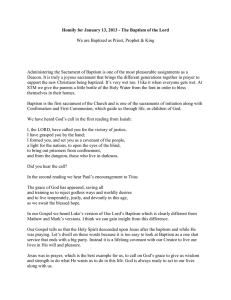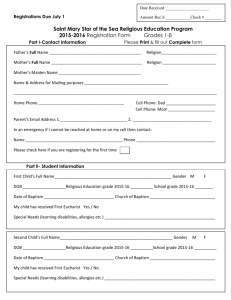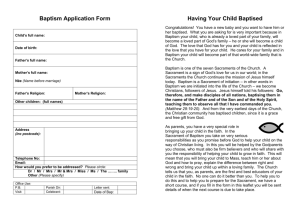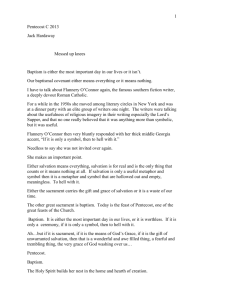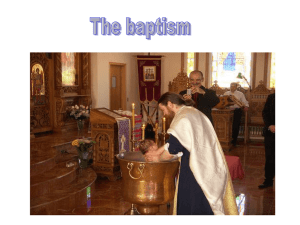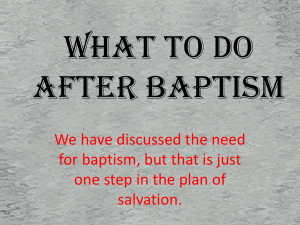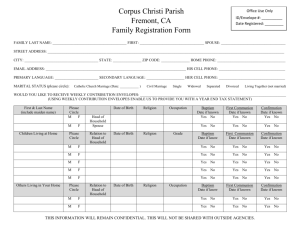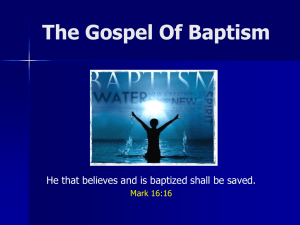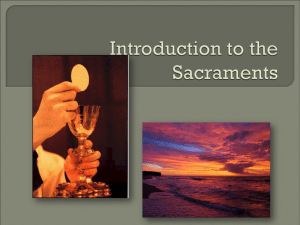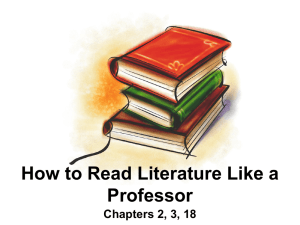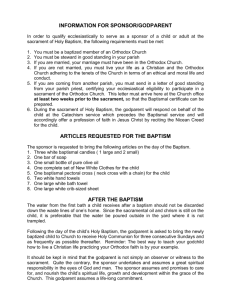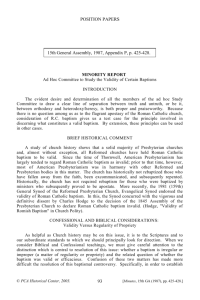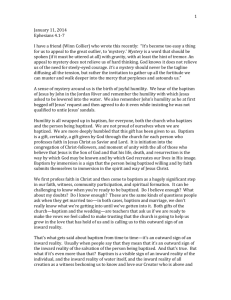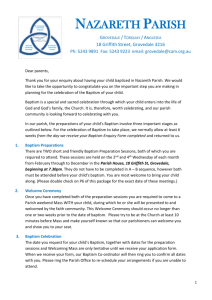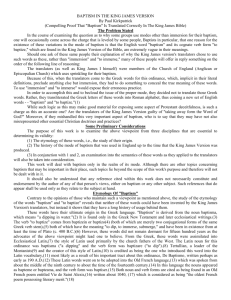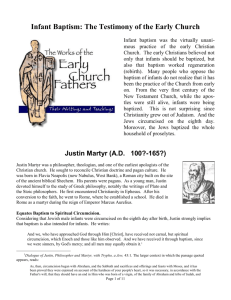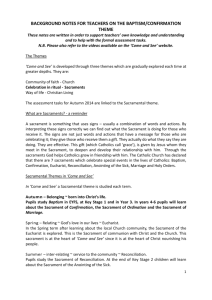Religious Education Planning ~ Sacrament Strand Year 2
advertisement
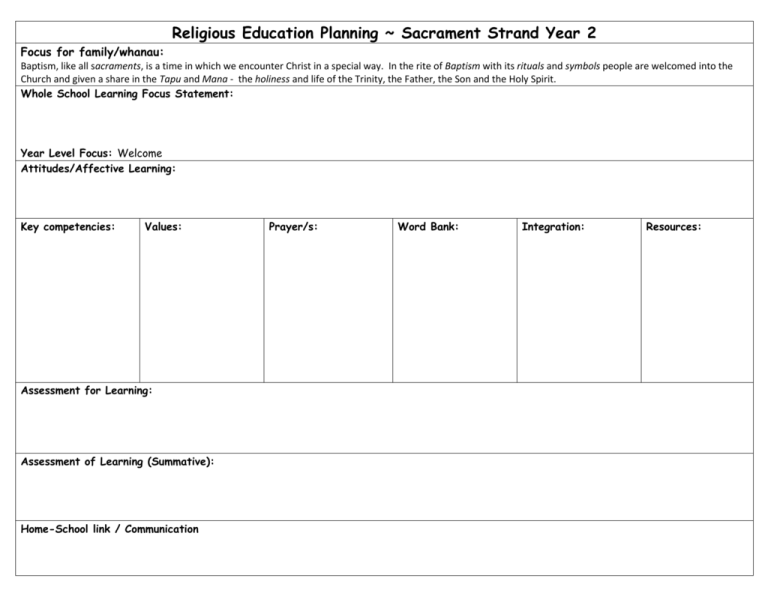
Religious Education Planning ~ Sacrament Strand Year 2 Focus for family/whanau: Baptism, like all sacraments, is a time in which we encounter Christ in a special way. In the rite of Baptism with its rituals and symbols people are welcomed into the Church and given a share in the Tapu and Mana - the holiness and life of the Trinity, the Father, the Son and the Holy Spirit. Whole School Learning Focus Statement: Year Level Focus: Welcome Attitudes/Affective Learning: Key competencies: Values: Assessment for Learning: Assessment of Learning (Summative): Home-School link / Communication Prayer/s: Word Bank: Integration: Resources: Achievement Objectives 1. develop an understanding about Baptism as a Sacrament – a special meeting with Jesus. Key Concept: Baptism is a Sacrament – a special meeting with Jesus 2. recognise the Rite of Baptism with its rituals and symbols as a means of welcoming people into the part of God’s family we call the Church. Key Concept: Baptism with its rites rituals and symbols welcomes people into God’s family 3. develop an understanding about Baptism as a Sacrament which purifies and makes people holy. Key Concept: Baptism purifies and makes people holy Intended Learning Outcomes WALT: Page/ Teaching/Learning Experiences Slide Bullet Assessment Tasks 4. develop an understanding of Baptism as a Sacrament through which people share in the life of the Trinity, the Father, the Son and the Holy Spirit. Key Concept: Baptism people share in the life of the Trinity – the Father, the Son and the Holy Spirit 5. develop an understanding of Baptism as a Sacrament which enables people to share in the tapu – holiness and mana – spiritual power of Te Atua – lo Matua Kore – God. Key Concept: Through Baptism, people share in God’s tapu and mana 6.recognise ways that people are welcomed at the Eucharist. Key Concept: People are welcomed at Eucharist. Teacher’s Reflection on Students’ Responses to Affective Learning Activities Evaluation of teaching and learning: What growth in attitudes are evident? How do the students demonstrate the learning in daily living? What is the evidence? What learning is evident through student voice? What evidence through the student voice demonstrates that they were motivated, engaged and responsive? What activity/ies most engaged students? Is this activity/strategy worth sharing with my colleagues? Were there any barriers to learning? Is there something I need to change in my teaching practice? What needs to inform the focusing inquiry in my next unit? General Comments
